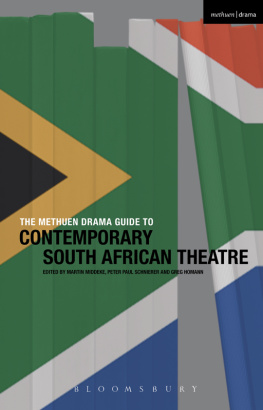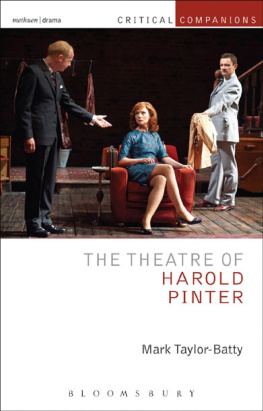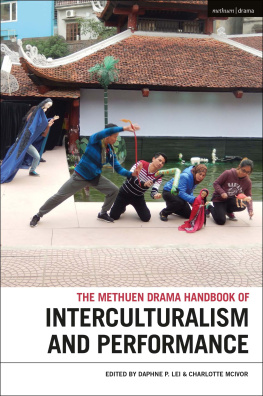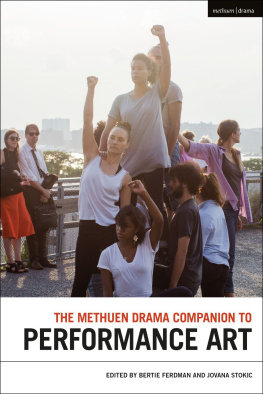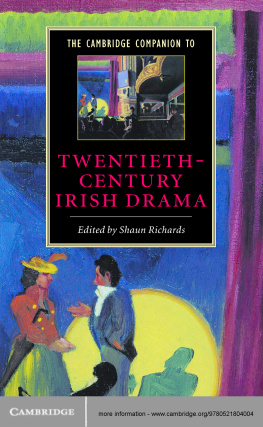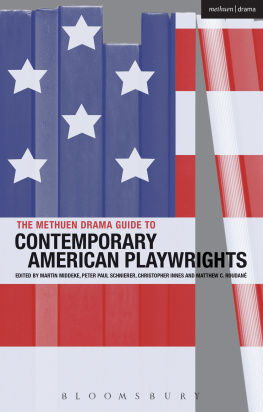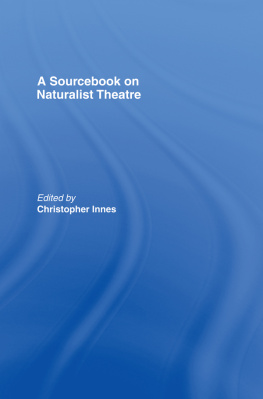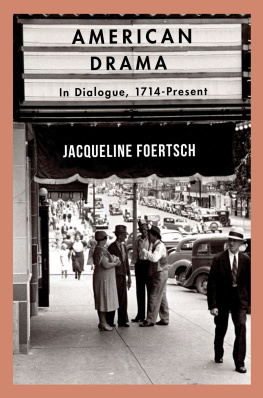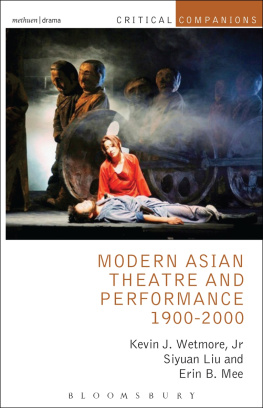THE METHUEN DRAMA GUIDE TO CONTEMPORARY SOUTH AFRICAN THEATRE
In the same series from Bloomsbury Methuen Drama:
THE METHUEN DRAMA GUIDE TO CONTEMPORARY AMERICAN PLAYWRIGHTS
Edited by Martin Middeke, Peter Paul Schnierer, Christopher Innes and Matthew C. Roudan
ISBN 978-1-4081-3479-5
THE METHUEN DRAMA GUIDE TO CONTEMPORARY BRITISH PLAYWRIGHTS
Edited by Martin Middeke, Peter Paul Schnierer and Aleks Sierz
ISBN 978-1-4081-2278-5
THE METHUEN DRAMA GUIDE TO CONTEMPORARY IRISH PLAYWRIGHTS
Edited by Martin Middeke and Peter Paul Schnierer
ISBN 978-1-4081-1346-2
THE METHUEN DRAMA GUIDE TO CONTEMPORARY SOUTH AFRICAN THEATRE
Edited by Martin Middeke, Peter Paul Schnierer and Greg Homann
Bloomsbury Methuen Drama
An imprint of Bloomsbury Publishing Plc

Bloomsbury Methuen Drama
An imprint of Bloomsbury Publishing Plc
Imprint previously known as Methuen Drama
50 Bedford Square | 1385 Broadway |
London | New York |
WC1B 3DP | NY 10018 |
UK | USA |
www.bloomsbury.com
BLOOMSBURY, METHUEN DRAMA and the Diana logo are trademarks of Bloomsbury Publishing Plc
First published 2015
2015 Martin Middeke, Peter Paul Schnierer and Greg Homann
Martin Middeke, Peter Paul Schnierer and Greg Homann have asserted their right under the Copyright, Designs and Patents Act, 1988, to be identified as editors of this work.
All rights reserved. No part of this publication may be reproduced or transmitted in any form or by any means, electronic or mechanical, including photocopying, recording, or any information storage or retrieval system, without prior permission in writing from the publishers.
No responsibility for loss caused to any individual or organization acting on or refraining from action as a result of the material in this publication can be accepted by Bloomsbury or the editors.
British Library Cataloguing-in-Publication Data
A catalogue record for this book is available from the British Library.
ISBN: | HB: | 978-1-4081-7670-2 |
PB: | 978-1-4081-7669-6 |
ePDF: | 978-1-4081-7672-6 |
ePub: | 978-1-4081-7671-9 |
Library of Congress Cataloging-in-Publication Data
A catalog record for this book is available from the Library of Congress.
Typeset by Fakenham Prepress Solutions, Fakenham, Norfolk NR21 8NN
CONTENTS
Greg Homann, Martin Middeke and Peter Paul Schnierer
Sarah Roberts
Jane Taylor
Yvette Hutchison
Robyn Sassen
Emma Durden
Veronica Baxter
Dennis Walder
Anton Krueger
Adrienne Sichel
Kene Igweonu
Loren A. Kruger
Brent Meersman
Michael Titlestad
Muff Andersson
Kevin J. Wetmore, Jr
Mervyn McMurtry
Miki Flockemann and Rolf Solberg
Marcia Blumberg
Greg Homann
An interview with Greg Homann (2 February 2015)
Professor Martin Middeke is Chair of English Literature at the University of Augsburg, Germany, and Visiting Professor at the University of Johannesburg, South Africa.
Professor Peter Paul Schnierer is Chair of English Literature at the University of Heidelberg, Germany.
Greg Homann is an independent academic and multi-award-winning theatre director based in Johannesburg, South Africa.
Acknowledgements
The editors are grateful to all of the above, to the efficient and patient staff at Bloomsbury Methuen Drama, and many others. Once again, we wish to convey our greatest debts of gratitude to Adriana Lopez, Nadja Rehberger, Tim Sommer, and Katja Utz for their diligent work on the manuscript during various stages.
Greg Homann, Martin Middeke and Peter Paul Schnierer
South Africa has a very rich and diverse theatre that has brought together local and international performance traditions, differing theatre practices and varied forms that are seen in the vibrant scope of drama it produces.
This book focuses on the first twenty years of new plays written and produced in democratic South Africa. It surveys indigenous South African drama that is written predominantly in the English language. Through the analysis of more than 100 plays (while many more are mentioned on the way), a detailed history emerges of the struggle against apartheid, including an account of the countrys remarkable and unprecedented transition into democracy.
South African drama is internationally most recognized through the widely produced plays written by Athol Fugard, but the countrys rich tradition of drama is not predominantly grounded in playwriting, nor is it a theatre that has historically been driven by the interests of playwrights. From around 1970 a tension has existed in South Africa between the practice of writing a play as a solo playwright and the workshop tradition of play making. The latter arguably became the dominant mode of play creation. By the 1980s a well-established collaborative theatre was at its height, coinciding with a State of Emergency in the country.
In order to straddle the full range of plays workshopped, written, developed and produced during the first twenty years of South Africas democracy, it has been important to allow for chapters that do not focus solely on a particular playwrights work. The introduction is hence followed by six systematic chapters that either focus on successful collaborations, or that allow particular modes of play making or similar types of plays to be discussed together. In the second part of the book we have chosen to include twelve essays that deal exclusively with the most established playwrights working over this twenty-year period. Each of these chapters provides information on biographical aspects of a particular playwrights life and career. Representative plays are then discussed in detail before concluding remarks summarize major topics and aesthetic strategies of the playwright at issue. These chapters are followed by one centring on emerging playwrights and a view into the future of South African theatre and drama. The book closes with an interview with Aubrey Sekhabi, the Artistic Director of the South African State Theatre in Pretoria. Not only does Sekhabi discuss aspects of his own work, but he also gives insight into the situation of South African theatre today including the issues of funding and developing new work.
***
Legislated racial segregation, or apartheid, governed South Africa from 1948 to 1994. Laws of separation and censorship impacted on all sectors of society. Music, art and theatre, however, became a thorn in the side of the apartheid government.
Oppressive laws were designed to limit, amongst other things, undesirable public performances. The apartheid government policed multiracial interaction and promoted staunch censorship legislation. The Publications and Entertainment Act of 1963, later updated to the Publications Act of 1974, was one example of many. This act prohibited work that was labelled as harmful to the state, offensive or obscene, a threat to peace and order, or a risk to what was defined as moral decency. The Group Areas Acts of 1950, 1957 and 1966 enforced segregation across residential, social and business lines, affecting both the way audiences attended plays and the way makers made them. The State of Emergency clauses that were enacted in the 1980s further obstructed the possibilities of public performances. Over four decades, playwrights, actors, musicians and other artists found themselves banned, imprisoned, tortured and beaten.
Next page
